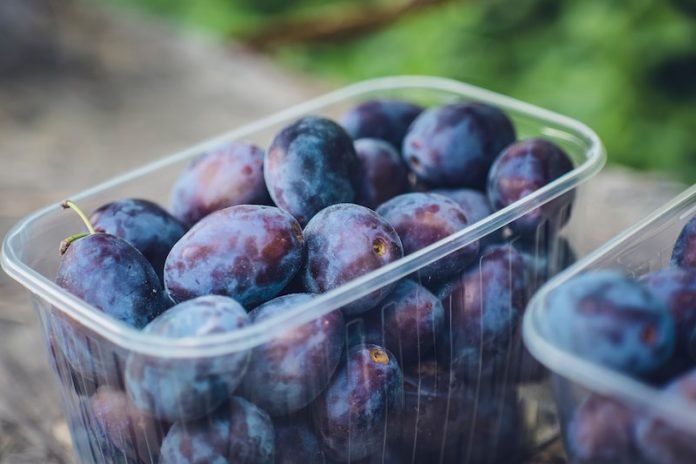
Scientists from Penn State found eating prunes may help protect older women from bone loss.
They found that prunes can help prevent or delay bone loss in older women, possibly due to their ability to reduce inflammation and oxidative stress, both of which contribute to bone loss.
The research is published in Advances in Nutrition and was conducted by Connie Rogers et al.
Osteoporosis is a condition in which bones become weak or brittle that can happen to anyone at any age, but according to the researchers is most common among women over the age of 50.
The condition affects more than 200 million women worldwide, causing almost nine million fractures each year.
In older women, lower levels of estrogen can trigger a rise of oxidative stress and inflammation, increasing the risk of weakening bones that may lead to fractures.
While medications exist to treat osteoporosis, there is a growing interest in ways to treat the condition with nutrition.
Prunes, however, have many nutritional benefits such as minerals, vitamin K, phenolic compounds and dietary fiber—all of which may be able to help counter some of these effects.
In the study, the team analyzed data from 16 preclinical animal studies, ten preclinical studies and two clinical trials.
Across the studies, the researchers found evidence that eating prunes helped reduce inflammation and oxidative stress and promoted bone health.
For example, the clinical trials found that eating 100 grams of prunes—about 10 prunes—each day for one year improved bone mineral density of bones in the forearm and lower spine and decreased signs of bone turnover.
Additionally, eating 50 or 100 grams of prunes a day for six months prevented loss of total bone mineral density and decreased TRAP-5b—a marker of bone resorption—compared to women who didn’t eat prunes.
Taken together, evidence suggests prunes may help to reduce bone loss. This may be due to altered bone turnover and by inhibiting inflammation and suppressing markers of oxidative stress.
The researchers said one potential mechanism for the effects is that prunes trigger a change in the gut microbiome that then lowers inflammation in the colon.
This may then lower levels of pro-inflammatory cytokines and markers of oxidative damage.
If you care about bone health, please read studies about bone problem that could increase COVID-19 death risk, and this exercise could slow down bone aging.
For more information about bone health, please see recent studies about bone drug that could lower risk of type 2 diabetes, and results showing plant-based diets can harm your bone health without these two nutrients.
Copyright © 2022 Knowridge Science Report. All rights reserved.



